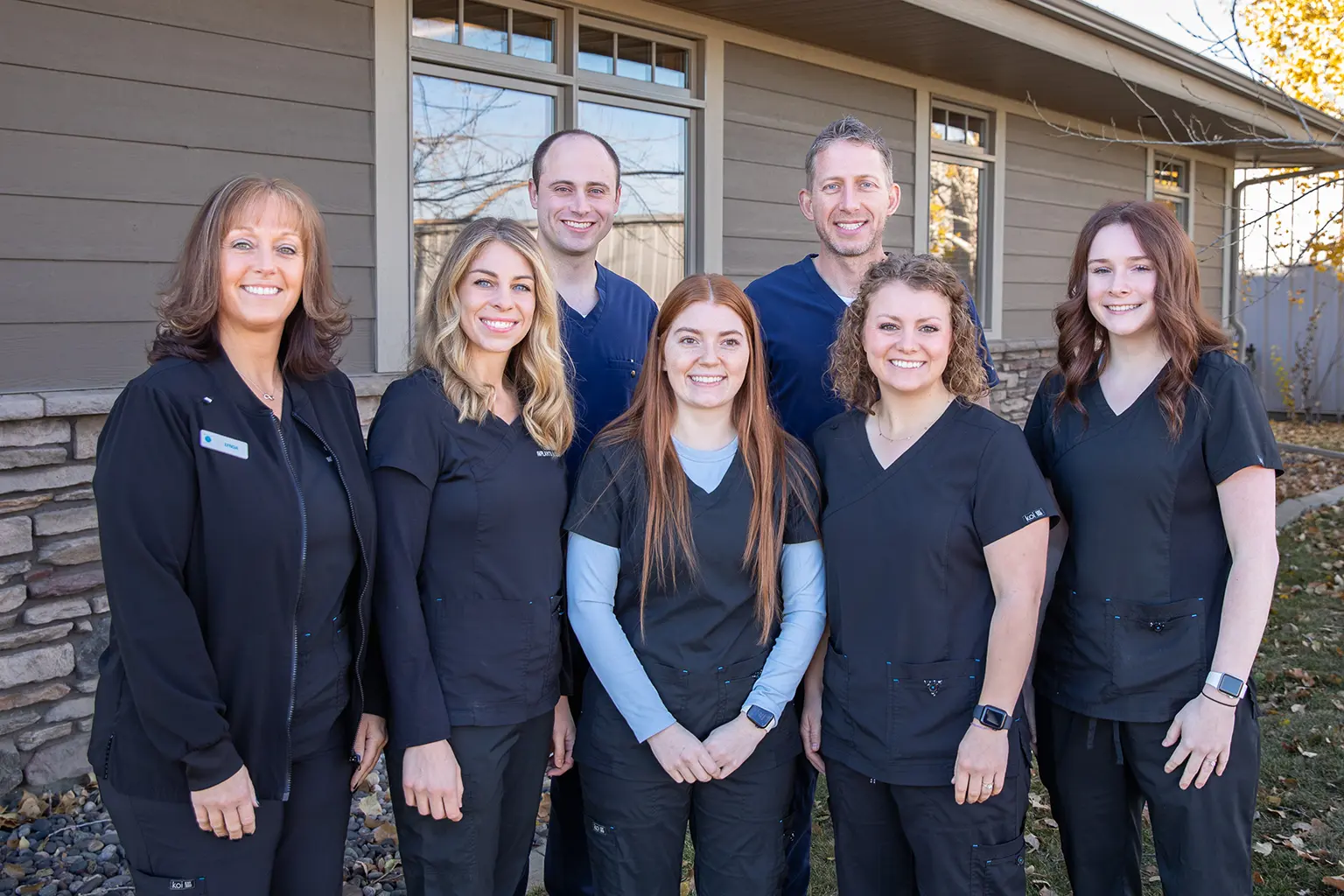Table of Contents
Dental implants are a life-changing solution for anyone looking to restore their smile. They offer durability, functionality, and a natural look, but the recovery process requires careful planning—especially when it comes to eating. What can I eat after getting dental implants? It’s a common question, and the answer depends on your stage of healing.
At Montana Center for Implants and Dentures, we want your dental implant recovery to go smoothly. That means knowing what to eat (and what to avoid) to protect your new implants. Your post-op diet plays a huge role in healing, reducing complications, and ensuring your smile makeover is a success.
Below, we’ll break down exactly what to eat after oral surgery with a week-by-week guide. You’ll get clear, actionable advice to help you enjoy your meals while prioritizing healing.
The First 24–48 Hours: Liquids and Soft Foods Only
Immediately after surgery, your mouth will be sensitive. Your gums will be swollen, and your implants will still be settling into place. Eating anything too hard, chewy, or hot could disrupt healing.
Best foods to eat:
- Smoothies (without seeds or straw use)
- Protein shakes
- Bone broth or vegetable broth
- Applesauce
- Blended soups (cooled down)
- Mashed potatoes
- Yogurt (plain or Greek, without fruit chunks)
Foods to avoid:
- Anything with seeds, nuts, or small bits (like chia pudding)
- Hot soups or drinks (heat can increase swelling)
- Acidic foods (tomatoes, citrus juices)
- Crunchy foods (chips, toast)
- Sticky foods (peanut butter, caramel)
Hydration tip: Drink plenty of water, but avoid straws! The suction can dislodge the blood clot at your surgical site, leading to dry socket—a painful complication.
Days 3–7: Introducing More Soft, Nutritious Foods
By the third day, you should feel a little more comfortable, but your mouth is still healing. Swelling may start to subside, but chewing will still be a challenge. Stick with soft, nutrient-dense foods that don’t require excessive chewing.
Best foods to eat:
- Scrambled eggs
- Cottage cheese
- Soft bananas
- Avocado
- Oatmeal
- Mashed sweet potatoes
- Blended lentil soup
- Soft pasta (macaroni or overcooked noodles)
Foods to avoid:
- Hard fruits or vegetables (apples, carrots, celery)
- Spicy foods (can irritate healing gums)
- Breads with crusts or bagels (too chewy)
- Popcorn, nuts, or seeds
- Anything carbonated (soda, sparkling water)
At this point, getting enough protein is crucial for healing. If chewing meat is difficult, try pureed meats or plant-based options like soft tofu or blended beans.
Week 2: Gradually Adding More Texture
By now, your implants are beginning to integrate with your jawbone. You may still experience tenderness, but most patients find it easier to eat a slightly wider variety of soft foods. You can start incorporating more texture into your diet while still avoiding anything too tough or crunchy.
Best foods to eat:
- Flaky fish (salmon, tilapia)
- Well-cooked vegetables (soft zucchini, steamed spinach)
- Soft-cooked ground turkey or chicken
- Rice or quinoa (well-cooked)
- Hummus
- Soft pancakes or waffles (without syrup)
Foods to avoid:
- Hard grains (granola, hard rice)
- Crunchy snacks (chips, pretzels)
- Sticky foods (taffy, caramel)
- Alcohol (delays healing and increases swelling)
Your dental implant recovery is progressing, but patience is key. Keep food soft and easy to chew to avoid disrupting healing.
Weeks 3–4: Slowly Returning to a Normal Diet
Most patients feel much better by weeks three and four. You can start introducing more foods with a little more resistance. However, you should still chew carefully and avoid using the implant area.
Best foods to eat:
- Ground beef (soft-cooked)
- Soft bread (no crust)
- Canned peaches or pears
- Tender chicken (slow-cooked or shredded)
- Cooked pasta with soft vegetables
- Soft cheese
Foods to avoid:
- Raw vegetables (carrots, broccoli, cauliflower)
- Steak or chewy meats
- Corn on the cob
- Hard crackers or crusty bread
This phase is about reintroducing normal foods while still being cautious. Cut food into smaller pieces and chew slowly to minimize strain on your implants.
Month 2 and Beyond: A Return to Normalcy
By the second month, most patients can return to their regular diet, but some restrictions still apply. If Dr. Muir or Dr. Townsend placed temporary crowns, you should continue avoiding very hard or sticky foods until your permanent crowns are placed.
Foods you can enjoy:
- Fresh fruit (cut into small pieces)
- Tender cuts of meat (slow-cooked or grilled)
- Whole grains
- Nuts and seeds (if finely chopped)
- Most cooked vegetables
Foods to still avoid (until your dentist gives the green light):
- Hard candies
- Ice (never chew ice!)
- Tough meats
- Sticky candy or gum
By this point, your smile makeover is almost complete. Your implants should feel comfortable, and you can enjoy most of your favorite foods again.
Tips for a Smooth Recovery in your Post-Op Diet
- Chew on the opposite side: If you have implants in one part of your mouth, use the other side to chew until you’re fully healed.
- Use a soft toothbrush: Keep the implant site clean, but be gentle.
- Follow Dr. Muir’s instructions: Your oral surgery recovery may be slightly different depending on your unique case. Follow any specific guidelines your dentist provides.
- Stay patient: Rushing into harder foods too soon can damage your implants and slow down your dental implant recovery.
Final Thoughts: What Can I Eat After Getting Dental Implants?
The right post-op diet is crucial for a smooth healing process. Montana Center for Implants and Dentures is here to help you through every step of your dental implant recovery. Eating the right foods at the right time will ensure your smile makeover is successful and that your implants last a lifetime.
If you have any questions or need more guidance, contact our team. We’re happy to help you navigate this exciting journey to a stronger, healthier smile!





